Table of Contents
-
FREE
REGISTRATION
HERE!
-
New to supercomputing? Click
here.
-
KEYNOTE:
Amy
Friedlander,
National Science Foundation
-
PLENARY:
Susan Gregurick,
National Institutes of Health
-
PLENARY:
Tom Lange,
Technology Optimization &
Management LLC
-
PLENARY:
Henry Neeman,
University of Oklahoma
-
PLENARY:
John Shalf,
Lawrence Berkeley National Laboratory
-
PLENARY:
Dan Stanzione,
Texas Advanced Computing Center,
University of Texas at Austin
-
PANEL MODERATOR:
James Deaton,
Great Plains Network
-
PANELIST:
Pratul K. Agarwal,
Oklahoma State University
-
Brian Burkhart,
OneNet
-
PANELIST:
Jeremy Evert,
Southwestern Oklahoma State University
-
PANELIST:
James Ferguson,
University of Oklahoma
-
PANELIST:
Franklin Fondjo Fotou,
Langston University
-
PANELIST:
Karl Frinkle,
Southeastern Oklahoma State University
-
PANELIST:
Peter J Hawrylak,
University of Tulsa
-
PANELIST:
Evan Lemley,
University of Central Oklahoma
-
-
PANELIST:
Stephen Wheat,
Oral Roberts University
PLENARY
SPEAKERS
Deputy Office Director
Office
of Advanced Cyberinfrastructure
National
Science Foundation
Topic:
"Innovation and Stability in the
Research Cyberinfrastructure"
Talk Abstract
The central problem in
technology-driven large-scale
infrastructure systems
is providing services that
are
predictable,
reliable,
and
broadly accessible,
without allowing them to become
obsolete,
stale,
and
under-resourced.
For Cyberinfrastructure (CI),
this problem is particularly acute,
as the technologies
themselves
advance very rapidly,
user demand and expectations escalate,
and the cyberinfrastructure is
itself dynamic.
This talk provides
an overview of programs in
the
Office
of Advanced Cyberinfrastructure,
(OAC)
at the
National
Science Foundation,
and explores ways OAC manages
this tension between
provisioning the national research CI
and
enabling innovation in
the CI systems and services
that nurture development of new capabilities
to transform
the next generation of scientific research.
Biography
Amy Friedlander
is currently
the Acting Office Director for the
Office
of Advanced Cyberinfrastructure,
Directorate
for Computer and
Information Science and Engineering
(CISE/OAC),
where she has served as
Acting Deputy Division Director
and
Deputy Office Director
since November 2014.
Since joining NSF in 2010,
she has led several strategic activities,
including both initial coordination of the
Public
Access Initiative
and the activities that culminated in
the widely-distributed report
Rebuilding
the Mosaic
(2011).
In addition to her position in OAC,
Dr. Friedlander plays a central role in
NSF's data management
policies and activities
that address the Foundation's
administrative data
as well as
the research data
resulting from NSF's investments.
Prior to her NSF appointment,
Dr. Friedlander held positions in
the private non-profit and for-profit sectors.
Among other projects,
she participated in the
Blue
Blue Ribbon Task Force on
Sustainable Digital
Preservation and Access,
funded largely by NSF;
led the initial strategic planning for the
Library
of Congress'
National
Digital Information Infrastructure
and Preservation Program
(NSIIPP);
and served as
editor-in-chief of the
ACM
Journal on Computing and
Cultural Heritage.
At the
Corporation
for National Research Initiatives
(CNRI),
she was the founding editor of
D-Lib
Magazine
and
the
author of a series of studies of
the historical development
large-scale technology-intensive
infrastructures
in the U.S.
Dr. Friedlander graduated from
Vassar
College,
where she was elected to
Phi
Beta Kappa.
She holds the
M.A. and Ph.D. from
Emory
University
and the M.S.L.I.S. from
The
Catholic University of America.
She
pursued postdoctoral work on
quantitative methods and
computer-assisted social science research at
the
Newberry
Library
in Chicago IL.
Director
Office
of Data Science Strategy
Associate Director for Data Science
National
Institutes of Health
Topic:
"Enabling a FAIR Data Ecosystem"
Slides:
available after the Symposium
Talk Abstract
Coming soon
Biography
Susan K. Gregurick, Ph.D.,
was appointed
Associate Director for Data Science
and
Director of the
Office
of Data Science Strategy
(ODSS)
at the
National
Institutes of Health
on Sept. 16, 2019.
Under Dr. Gregurick's leadership,
the ODSS leads the implementation of
the NIH Strategic Plan for Data Science
through
scientific,
technical,
and
operational
collaboration with the
institutes,
centers,
and
offices
that comprise NIH.
Dr. Gregurick was instrumental in
the creation of the ODSS in 2018
and served as a senior advisor to the office
until being named to
her current position.
Dr. Gregurick was previously
the Division Director for
Biophysics,
Biomedical Technology,
and
Computational Biosciences
at the
National
Institute of General Medical Sciences.
Prior to joining the NIH in 2013,
Dr. Gregurick was a program director in the
Office
of Biological and Environmental Research
at the
Department
of Energy.
Before beginning
a career of government service,
Dr. Gregurick was a professor of
computational chemistry at the
University
of Maryland, Baltimore County.
Her research interests included
dynamics of large biological macromolecules,
and her areas of expertise are
computational biology,
high performance computing,
neutron scattering
and
bioinformatics.
Dr. Gregurick
received her undergraduate degree
in chemistry and mathematics from the
University
of Michigan
and her Ph.D. in physical chemistry from the
University
of Maryland.
Technology Optimization & Management LLC
Sole member
Topic:
"The Surprising
Digital Past, Present & Future
of Everyday Things"
Slides:
PowerPoint
Talk Abstract
The context and history of
today's digital transformation
that permeates everyday life
through everyday products,
has a parallel origin story
that goes back to the early 1800's.
The transitions from
Water to Rail to Roads to Wires ...
has spawned innovations and winners
and also left losers who failed to adapt.
Many Scientists and Engineers
still see innovation as a cycle of
Build,
Fly,
Crash,
Fix,
confined to the physical world.
High Performance Computing
has been with us in some form
for 40+ years,
and for many industries
it is has become norm driving innovation.
However,
with 'low tech' goods (or so they seem),
adoption of the latest technologies
that Innovate HOW to innovate
has continued to be a slog.
We will cover many examples where
there are some surprising successes —
from the bathroom,
to the laundry room and beyond.
Machine learning and 'big' data
has now emerged as a source of data
and a way to simplify
the adoption of results from
what were
very expensive,
technical
and
tedious calculations.
Machine learning does not 'replace' HPC;
it leverages it and can enhance its output.
The digital age
—
and HPC in particular
—
has created whole new careers
dedicated to our latest challenges,
which are amazingly similar,
but clearly different,
to the ones we faced 40 years ago.
Biography
Tom Lange
is a 36 year veteran of
Procter
& Gamble,
where he
founded and led P&G's organizational
Modeling & Simulation (M&S) community.
Before retiring as Director of M&S in 2015,
Tom spent his professional career
modeling and simulating
formulations,
products and production systems,
using technology to span the scales
from atoms to the store shelf.
Analysis and optimization contributed to
projects on
how hot air roasts peanuts and coffee,
how Pringles 'fly',
and
how baby size affects diaper leaks.
This included the disciplines of
Consumer Modeling,
Computational Chemistry & Biology,
CAE Computer Aided Engineering
(Structures,
Fluids,
Controls,
Chemical Engineering,
Empirical),
and Production System
Throughput & Reliability.
Tom now spends his professional time
consulting with Public and
Private enterprises on
ways to improve their competitive edge
through the use of
the latest computing based
modeling & simulation tools.
Henry
Neeman
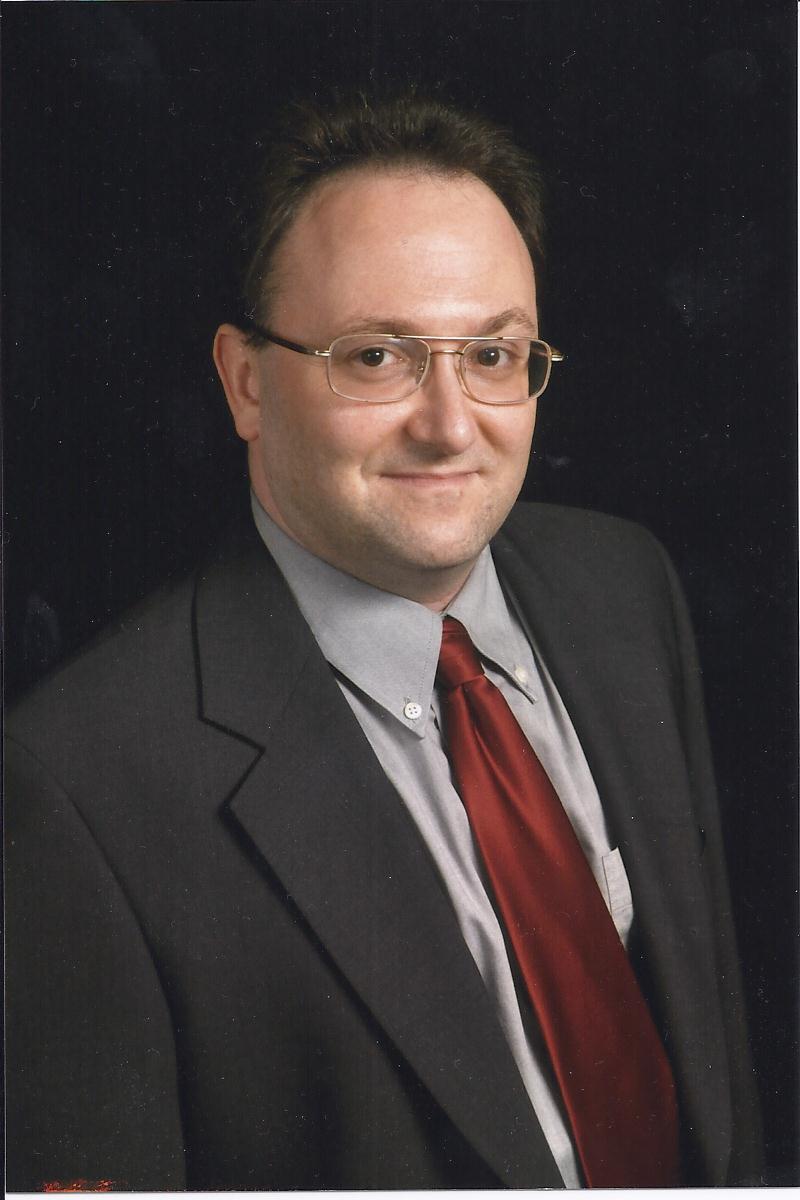
Assistant Vice President
–
Research Strategy Advisor
Information
Technology
Director
OU
Supercomputing Center for Education
& Research (OSCER)
Information
Technology
Associate Professor
College
of Engineering
Adjunct Associate Professor
School
of Computer Science
University
of Oklahoma
Joint Co-manager
(with
Dana
Brunson)
XSEDE
Campus Engagement
program
Topic:
"OSCER State of the Center Address"
Slides:
PowerPoint
PDF
Talk Abstract
The
OU
Supercomputing Center for
Education & Research
(OSCER)
celebrated its 19th anniversary
on August 31 2020.
In this report,
we examine
what OSCER is,
what OSCER does,
what OSCER has accomplished
in its 19 years,
and where OSCER is going.
Biography
Dr.
Henry Neeman
is the
Director of the
OU
Supercomputing Center for Education &
Research,
Assistant Vice President
Information Techology
–
Research Strategy Advisor,
Associate Professor in the
College
of Engineering
and
Adjunct Associate Professor in the
School
of Computer Science
at the
University of
Oklahoma.
He and
Dana
Brunson
are
joint co-leads of the
XSEDE
Campus Engagement
program,
which includes the
Campus
Champions.
He received his BS in computer science
and his BA in statistics
with a minor in mathematics
from the
State
University of New York at Buffalo
in 1987,
his MS in CS from the
University of
Illinois at Urbana-Champaign
in 1990
and his PhD in CS from UIUC in 1996.
Prior to coming to OU,
Dr. Neeman was a postdoctoral research
associate at the
National
Center for Supercomputing Applications
at UIUC,
and before that served as
a graduate research assistant
both at NCSA
and at the
Center for Supercomputing Research &
Development.
In addition to his own teaching and research,
Dr. Neeman has collaborated with
dozens of research groups,
applying High Performance Computing techniques
in fields such as
numerical weather prediction,
bioinformatics and genomics,
data mining,
high energy physics,
astronomy,
nanotechnology,
petroleum reservoir management,
river basin modeling
and engineering optimization.
He serves as an ad hoc advisor
to student researchers
in many of these fields.
Dr. Neeman's research interests include
high performance computing,
scientific computing,
parallel and distributed computing
and
computer science education.
Dan
Stanzione
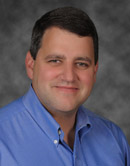
Executive Director
Texas
Advanced Computing Center
The University
of Texas at Austin
Topic:
"Frontera 2020: Urgent Computing and
a Big Supercomputer in a Crazy Year"
Slides:
available after the Symposium
Talk Abstract
This talk will discuss
how supercomputers are used in
the fight against a global pandemics,
from molecular modeling
to genomics
to modeling how people interact
from cell phone data.
This will include the experiences from
the first year of the Frontera system,
which played a significant role in this fight.
The talk will also cover
the planning ongoing for the NSF
Leadership Class Computing Facility,
including the role "Urgent Computing" may play.
Biography
Dan Stanzione is the Executive Director of the
Texas
Advanced Computing Center
(TACC)
at
The
University of Texas at Austin
and the Principal Investigator for
Wrangler.
He is also the PI for TACC's 10 PetaFlop
Stampede
supercomputer,
and has previously been involved in
the deployment and operation of the
Ranger
and
Lonestar
supercomputers at TACC.
He served as the Co-Director of
The
iPlant Collaborative,
an ambitious endeavor to build
cyberinfrastructure to address
the grand challenges of plant science.
Prior to joining TACC,
Dr. Stanzione was the founding director of the
Ira A. Fulton
High Performance Computing Institute
(HPCI)
at
Arizona
State University (ASU).
Before ASU,
he served as an AAAS Science Policy Fellow
in the
National
Science Foundation
and as a research professor at
Clemson
University,
his alma mater.
John
Shalf
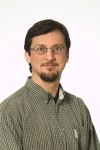
Department Head for Computer Science
Lawrence
Berkeley National Laboratory
Topic:
"Pathfinding for Post-Exascale HPC"
Slides:
PDF
Talk Abstract
With the inevitable demise of Moore's Law,
it will be challenging to obtain
the time-to-solution goals for
future IC computing requirements
with conventional off-the-shelf CPU designs.
The last decade of HPC has seen
the growth of GPUs and accelerators,
and the underlying philosophy is that
in order to achieve the required speeds,
we must develop include hardware
accelerators tailored for science
in addition to the general-purpose CPUs.
The mega-datacenter
(Facebook, Microsoft Azure, Google, and Amazon)
have deployed multiple strategies
to introduce specialized hardware
to continue performance growth
for their datacenters
in the absence of transistor scaling.
The three strategies are
application-specific acceleration
(such as the Google TPU),
heterogeneous acceleration within
System-On-Chips (SOCs)
(Amazon Graviton and Graviton2 and
Apple's iPhone chips),
and resource disaggregation
(Google, Facebook).
The central question for us to consider
is which of those strategies
(or combination thereof)
could be applied
to serve the needs of scientific computing,
and what would we need to change or augment
to make these specialization strategies work
for science.
Biography
John Shalf
is
Department Head for
Computer Science and Data Sciences
at
Lawrence
Berkeley National Laboratory,
and recently was
deputy director of Hardware Technology
for the
US
Department of Energy's
Exascale
Computing Project.
Shalf is a co-author of over 80 publications
in the field of
parallel computing software and HPC technology,
including three best papers and
the widely cited report
"The Landscape of Parallel Computing Research:
A View from Berkeley"
(with David Patterson and others).
He also co-authored the 2008
"ExaScale Software Study:
Software Challenges in Extreme Scale Systems,"
which
set
the
Defense
Advanced Research Project Agency's
(DARPA's)
information technology research
investment strategy.
Prior to coming to Berkeley Laboratory,
John worked
at the
National
Center for Supercomputing Applications
at the
University
of Illinois
and
the
Max-Planck-Institut
fuer
Gravitationphysick/Albert Einstein Institut
in Potsdam, Germany,
where he
was co-creator of
the
Cactus
Computational Toolkit.
Pratul
K. Agarwal
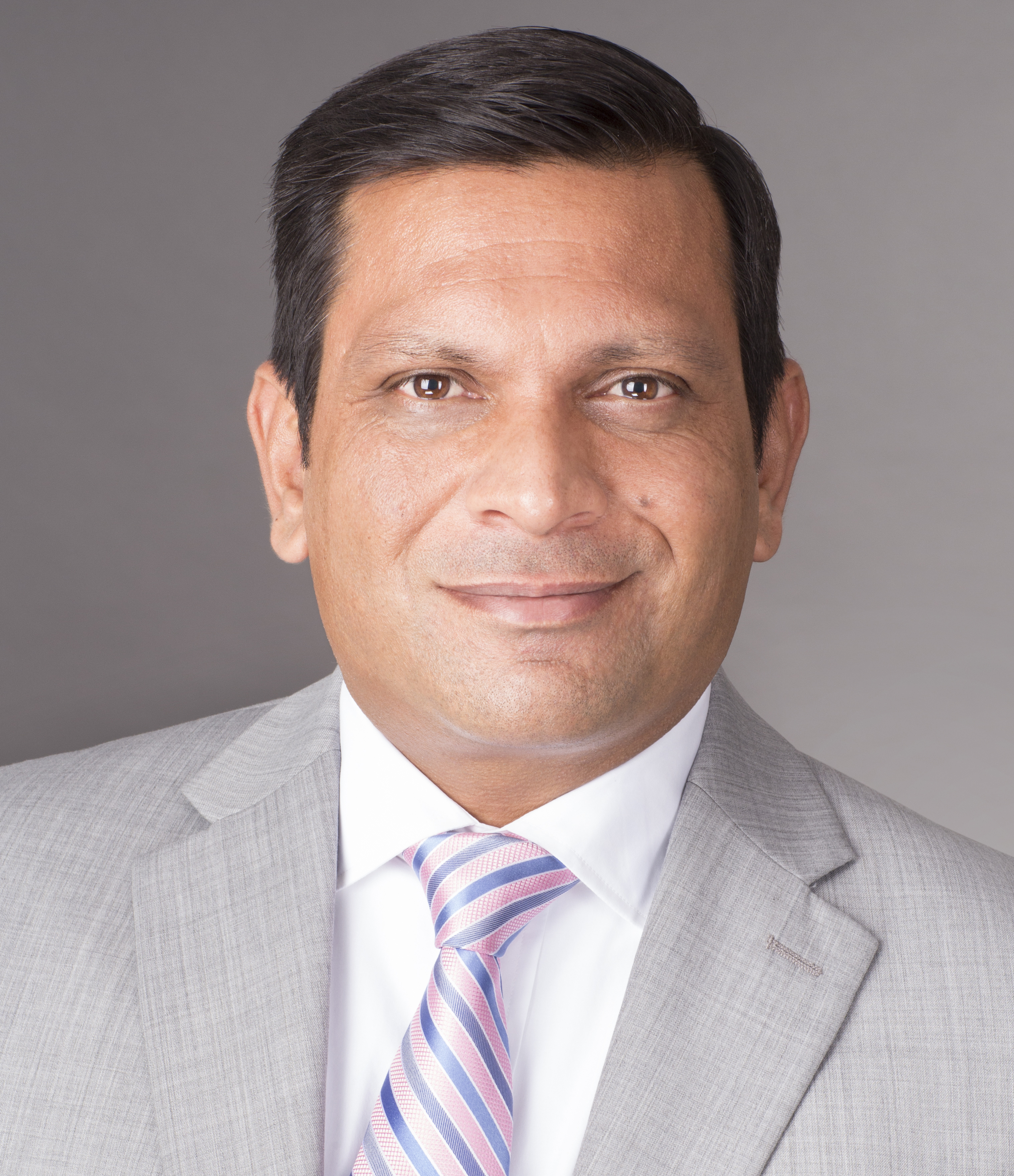
Professor of Physiological Sciences
Assistant Vice President for Research
(CyberInfrastructure)
Director,
OSU
High Performance Computing Center
Oklahoma
State University
Panel Topic:
"The OneOklahoma Cyberinfrastructure
Initiative:
Fostering a Culture of
Cyberinfrastructure Grant Proposals"
Talk Abstract
Coming soon
Biography
Pratul K. Agarwal
is the Assistant Vice President of Research
for Cyber-Infrastructure
and is also the Director of the
OSU
High-Performance Computing Center
He has over 15 years of experience in
high performance computing
and
scientific research.
He previously held positions at
University
of Tennessee Knoxville
and
Oak
Ridge National Laboratory.
He currently serves on Editorial Board of
the
journal
Microbial
Microbial Cell Factories,
and is an Academic Editor for
PLoS
ONE.
He has served on
a number of national and international
scientific review panels for
US (NSF/NIH/EPA/DARPA),
Swiss,
Italian,
and
Polish
government agencies.
He has published
over 65 papers in peer-reviewed journals
(including
Proceedings
of the National Academy of Sciences,
Angewandte
Chemie,
PLoS
Biology,
Accounts
of Chemical Research,
Journal
of the American Chemical Society,
Biochemistry,
IEEE
Computer,
Concurrency
and Computations:
Practice and Experience,
and
Proceedings of the
IEEE
International Conferences on
High-Performance Computing, Data, and
Analytics.
He holds 3 patents and
4 patent applications pending.
His research interests are
a combination of topics
that span the domains of
biology,
chemistry,
data informatics,
and
high performance computing.
His group develops and uses
data analysis techniques,
theoretical methods
along with
large-scale computer simulations
to investigate biomolecules.
He closely work with experimental collaborators
for development and validation of
the computational models.
He is particularly interested in
solving problems that have implications for
clean energy,
environment
and
health.
Brian Burkhart
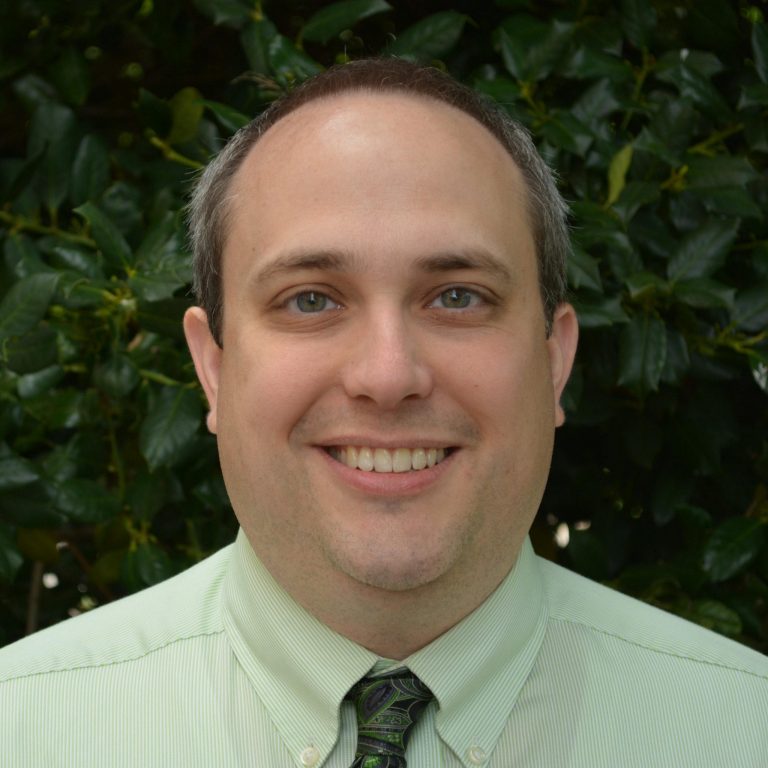
Senior Director of Network Systems
OneNet
Panel Topic:
"The OneOklahoma Cyberinfrastructure
Initiative:
Fostering a Culture of
Cyberinfrastructure Grant Proposals"
Panel Abstract:
Coming soon
Biography
Brian Burkhart
joined the
OneNet
team in November 1999 as a systems engineer.
He currently serves as
senior director of network systems
and manages the OneNet team members
who deliver "above-the-net" services
such as
web,
email,
DNS,
virtual infrastructure,
application hosting
and
video conferencing.
Brian also engages with
the research community in Oklahoma
and the region
to ensure OneNet services and support
are well-matched to the needs of researchers.
Brian is a co-PI on the
SI-MORe-OFFN
grant,
which is bringing
dedicated research connectivity
and network equipment
to five additional institutions in Oklahoma.
James Deaton

Executive Director
Great
Plains Network
Panel Topic:
"The OneOklahoma Cyberinfrastructure
Initiative:
Fostering a Culture of
Cyberinfrastructure Grant Proposals"
Panel Abstract
Coming soon
Biography
James Deaton
is
Executive Director
of the
Great
Plains Network.
Deaton serves on the board of
the Quilt
(National Consortium of Research Networks),
is Chair of
Internet2's
Network
Architecture, Operations and Policy
Program Advisory Group,
and
is proud to be involved in
a number of
regional research computing and data projects,
such as the
Great
Plains CyberTeam
and
Great
Plains ARGO
projects.
Deaton's involvement with the
OneOklahoma
Cyberinfrastructure Initiative
(OneOCII)
has facilitated
a number of successful programs
leveraging state networking facilities
to serve the needs of
researchers and faculty
at numerous institutions in the region.
He previously served as
Chief Technology Officer
for
OneNet,
Oklahoma's
statewide research and education network.
In this capacity,
he was a key decision-maker
in terms of
technology oversight,
engineering
and
long-term research and development.
In addition to his responsibilities at OneNet,
Deaton was accountable for
maintaining close involvement with
researchers and engineers of
state,
regional
and
national
network initiatives.
Jeremy
Evert
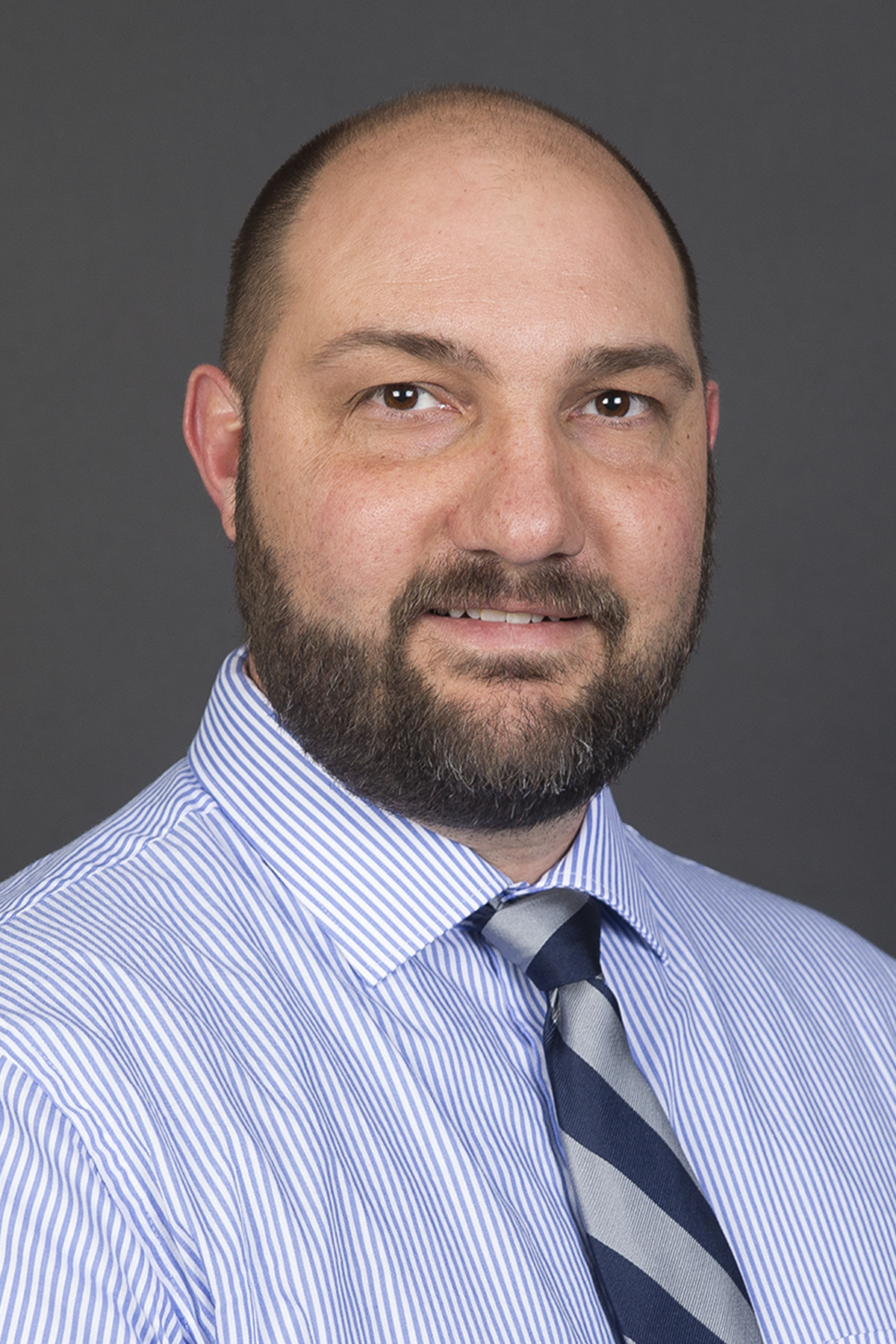
Associate Professor of Computer Science
Department
of Business & Computer Science
Southwestern
Oklahoma State University
Panel Topic:
"The OneOklahoma Cyberinfrastructure
Initiative:
Fostering a Culture of
Cyberinfrastructure Grant Proposals"
Abstract
Coming soon
Biography
Dr. Jeremy Evert
is an assistant professor for the
Department
of Business & Computer Science
at
Southwestern
Oklahoma State University.
Jeremy teaches
introductory programming
and
source code management.
He works closely with his students on
undergraduate research projects.
Jeremy has been successful in
securing funding for
equipment and student travel from
Oklahoma NASA EPSCoR
and the
National
Science Foundation.
Jeremy has been a mentor for a
Blue Waters Student Intern,
and has also coached teams for
the 2020 and 2020
Oklahoma
High Performance Computing Competition.
Jeremy was selected by the SWOSU students as
the 2020 Faculty of the Year.
James
W. Ferguson

Research Computing Facilitator
OU
Supercomputing Center for Education &
Research
University
of Oklahoma
Panel Topic:
"The OneOklahoma Cyberinfrastructure
Initiative:
Fostering a Culture of
Cyberinfrastructure Grant Proposals"
Panel Abstract
Coming soon
Biography
Jim Ferguson
is a Research Computing Facilitator for
OU
Supercomputing Center for Education &
Research
(OSCER)
at the
University
of Oklahoma.
Jim works directly with users of OSCER
through direct consultation and mini-workshops
fashioned to fit in to busy schedules.
He is a certified
Carpentries
instructor
and instructs at workshops organized
through
OU
Libraries.
Jim also works for the
Great
Plains Cyberteam
project,
an NSF-funded effort,
along with other colleagues from
several
Great
Plains Network
affiliated Universities.
Before coming to OSCER,
Jim served as the Director of
Education, Outreach & Training
for the
National
Institute for Computational Sciences
(NICS)
at the
University
of Tennessee Knoxville.
Before joining NICS,
Jim's focus was programming for,
training,
and educating
users of
high performance computers and networks.
Jim's previous experience includes
positions at
Pratt
& Whitney Aircraft
and the
National
Center for Supercomputing Applications,
including significant roles in
NSF-funded projects
like the
National
Laboratory for Applied Network Research
and
Web100.
Jim is an alumnus of
Rose-Hulman
Institute of Technology.
Franklin Fondjo Fotou, Dr. Eng.
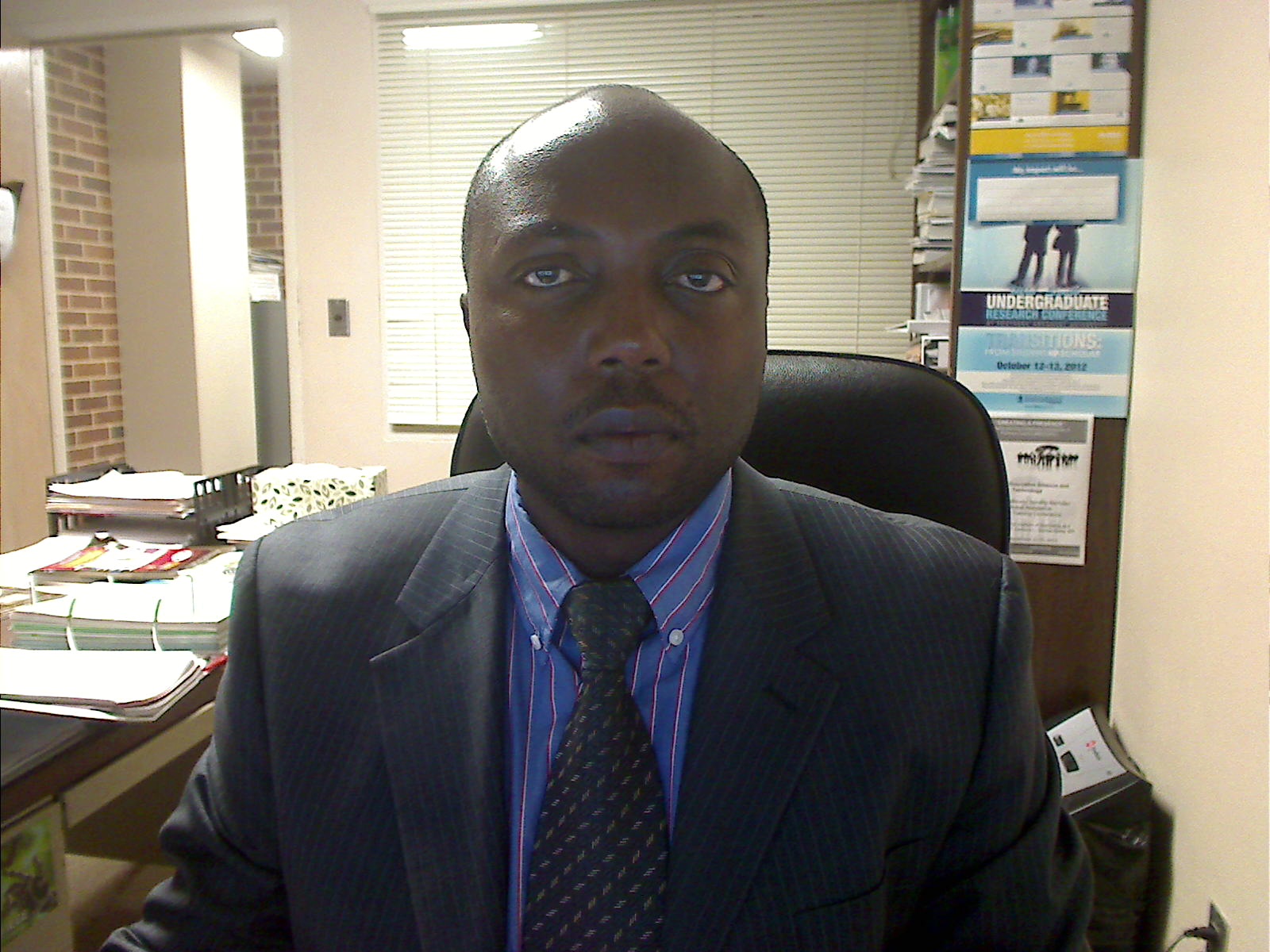
Associate Professor
Department Chair
Department of Technology
School of Arts and Sciences
Langston
University
Panel Topic:
"The OneOklahoma Cyberinfrastructure
Initiative:
Fostering a Culture of
Cyberinfrastructure Grant Proposals"
Panel Abstract
Coming soon
Biography
Franklin Fondjo Fotou
received his B.S. degree in Physics,
M.Sc. degrees in Physics
(with a minor in Electronics),
M.Sc. Degree in Physics
(with a minor in Heat Transfer)
from the
University of Yaoundé I,
Yaoundé Cameroon,
in 1996, 1998, and 2000
respectively.
He received the Doctor's degree in
Computer Science and Communication Engineering
at the
Graduate School of
Information Science and Electrical Engineering,
Kyushu University,
Japan in March 2006.
Dr. Fondjo
was recipient of
the Japanese government
scholarship for excellence,
the Munbukagakusho,
from April 2003 - March 2006,
and has received several the
Young Scientist Research Fund
of the 21st Century
COE Program of Japan
in 2004, 2005 and 2006.
He is Co-PI and key personnel on
several NSF funded grants.
His current research includes
Computational Electromagnetics and SAR,
Internet of Thing (IoT),
and big Data analysis and Data Science.
He is currently the Chair of the
Department of Technology,
Langston University,
in Langston OK.
The Co-Director of the
Langston Computing Center for
Research and Education
(LU-CCRE),
the Director of the
Langston Center for
Interdisciplinary Research and Education
(LU-CIRE),
and the Co-Director of the
Langston Math Science and Technology (MST)
Summer Program at Langston University.
Dr. Fondjo Fotou
is an XSEDE Campus Champion for
Langston University
and an active member of the
OneOklahoma Cyberinfrastructure Initiative
(OneOCII).
He served as member of the
Student Engagement program
for
XSEDE 16.
He is also member of both the
IEEE
(Institute of Electrical and
Electronics Engineers)
in US and the
IEICE
(The Institute of Electronics,
Information and Communication Engineers)
in Japan.
Karl
Frinkle
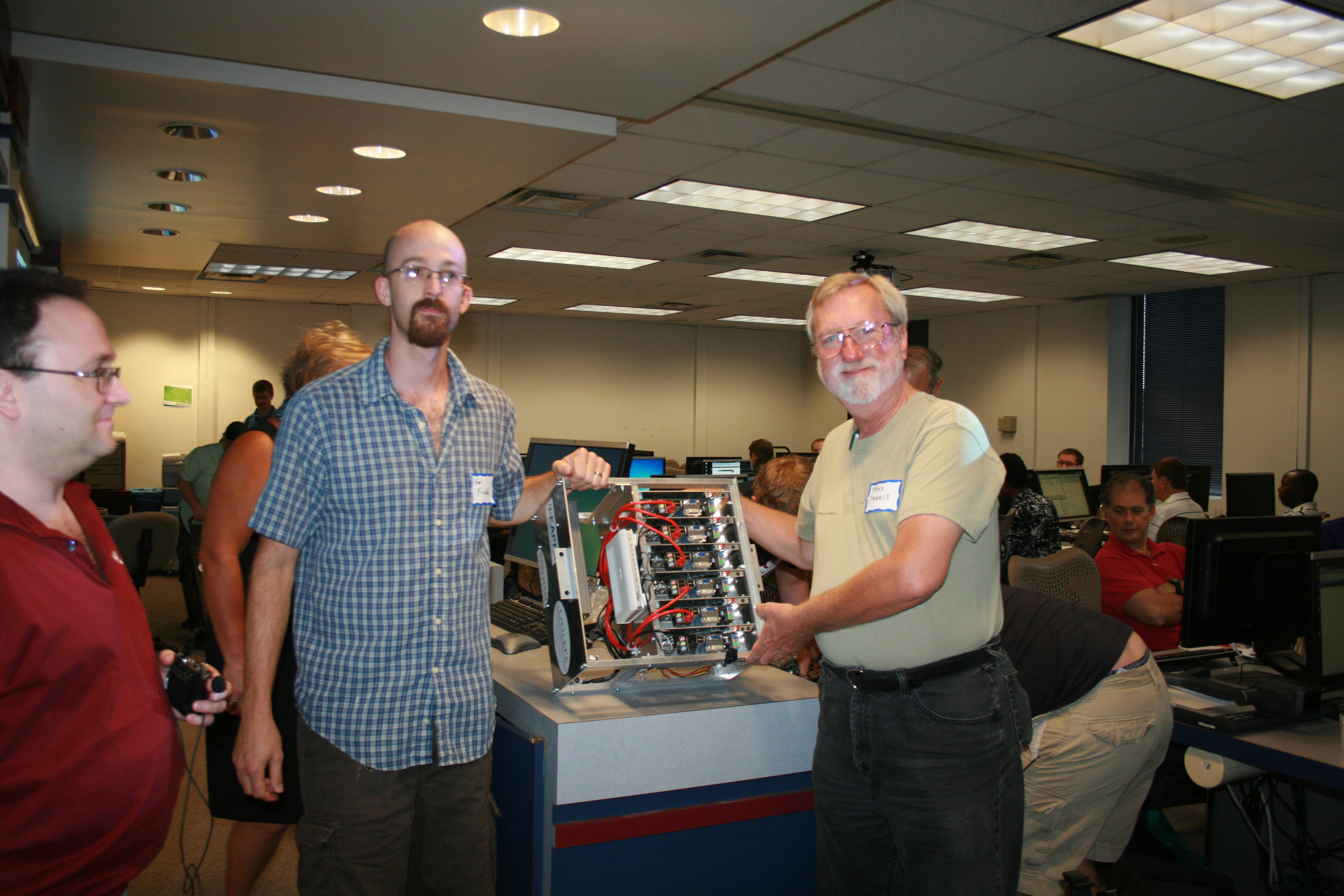
Professor
Department
of Mathematics
Southeastern
Oklahoma State University
Panel Topic:
"The OneOklahoma Cyberinfrastructure
Initiative:
Fostering a Culture of
Cyberinfrastructure Grant Proposals"
Abstract
Coming soon
Biography
Karl Frinkle
is an applied mathematician
who earned his PhD from the
University
of New Mexico.
He is deeply interested in
numerical simulations,
and most recently in parallel programming.
Karl joined
the SE Mathematics department in 2005,
and thoroughly enjoys teaching
parallel programming
courses
with
Mike Morris
through the CS department.
Peter
J. Hawrylak
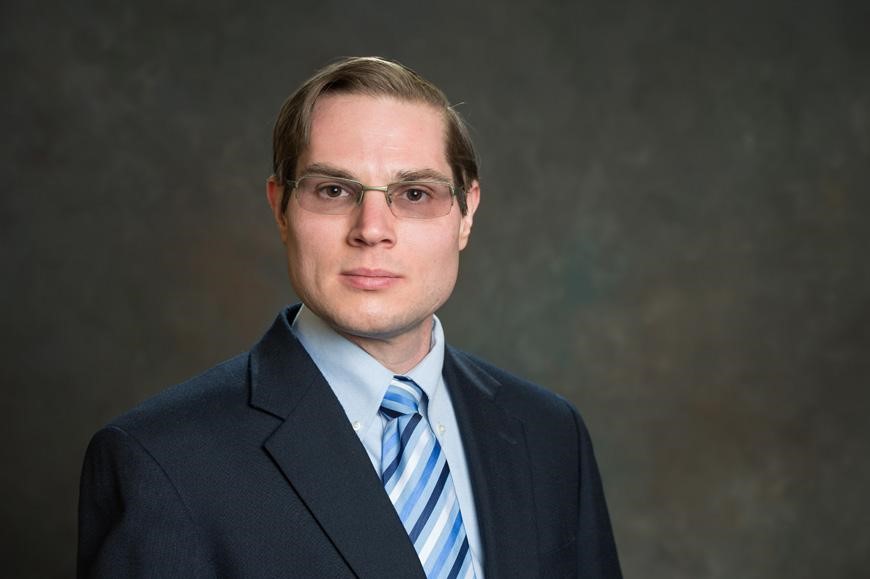
Associate Professor
Tandy
School of Computer Science
Associate Professor
Department
of Electrical and Computer Engineering
The University of
Tulsa
Panel Topic:
"The OneOklahoma Cyberinfrastructure
Initiative:
Fostering a Culture of
Cyberinfrastructure Grant Proposals"
Panel Abstract
Coming soon
Biography
Peter J. Hawrylak, Ph.D.
(M'05-SM'17)
received the B.S. degree in
Computer Engineering,
the M.S. degree in
Electrical Engineering,
and the Ph.D. in
Electrical Engineering
from the
University
of Pittsburgh,
in 2002, 2004, and 2006, respectively.
He is an Associate Professor in the
Department
of Electrical and Computer Engineering,
with a joint appointment in the
Tandy
School of Computer Science,
at
The University of
Tulsa.
He has published more than 60 publications
and holds 16 patents
in the radio frequency identification
(RFID)
and
energy harvesting areas.
His research interests include
RFID,
security for low-power wireless devices,
Internet of Things applications,
and
digital design.
Dr. Hawrylak is a member of the
IEEE
and
IEEE
Computer Society,
and is currently the Chair of
the Tulsa Section of the IEEE.
He served as chair of the
RFID Experts Group
(REG)
of the
Association
for Automatic Identification and Mobility
(AIM)
in 2012-2013.
Peter received AIM Inc.'s
Ted Williams Award
in 2020 for his contributions to
the RFID industry.
Dr. Hawrylak is the Publication Chair of
the
International
IEEE RFID Conference,
served as the Editor-in-Chief of the
IEEE
RFID Virtual Journal
from 2016-2019,
and is the Editor-in-Chief of the
International
Journal of
Radio Frequency Identification
Technology and Applications
(IJRFITA)
published by
InderScience
Publishers,
which focuses on
the application and development of
RFID technology.
Evan
Lemley
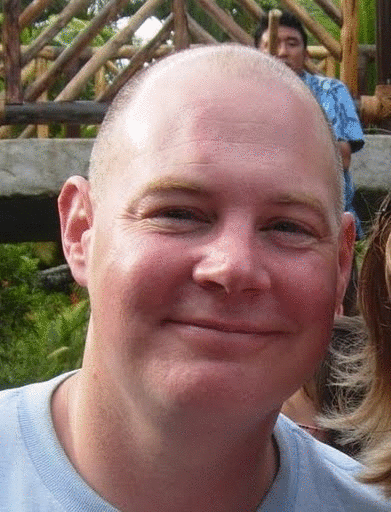
Professor
Department
of Engineering & Physics
University of
Central Oklahoma
Panel Topic:
"The OneOklahoma Cyberinfrastructure
Initiative:
Fostering a Culture of
Cyberinfrastructure Grant Proposals"
Panel Abstract
Coming soon
Biography
Evan Lemley
received his BA in Physics from
Hendrix
College
and MS and Ph.D
in Engineering (Mechanical) from the
University
of Arkansas.
His thesis
work was focused on modeling and simulation of
various neutron detectors.
Post graduation Evan worked for
the engineering consulting firm
Black &
Veatch
in a group responsible for
modeling coal power plants with
custom written software.
In August 1998,
Evan became an Assistant Professor in the
Department
of Engineering and Physics
(formerly Physics)
at the
University
of Central Oklahoma,
and has been there since,
teaching
mechanical engineering,
physics,
and
engineering computation
courses.
Early research at UCO was focused on
neutron transport in materials.
More recently,
Evan has been involved in simulation of
flow in microtubes and microjunctions
and
simulation of flow in porous networks.
Stephen Wheat
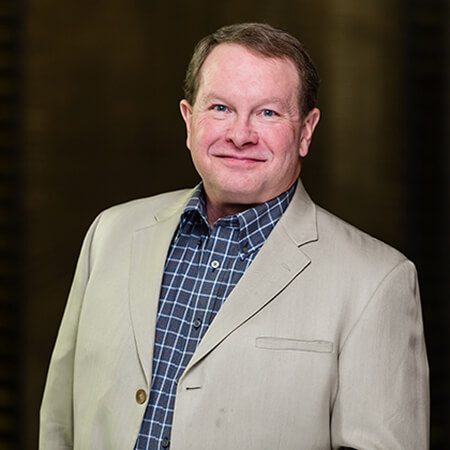
Department
of Computing and Mathematics
Oral
Roberts University
Panel Topic:
"The OneOklahoma Cyberinfrastructure
Initiative:
Fostering a Culture of
Cyberinfrastructure Grant Proposals"
Slides:
available after the Symposium
Talk Abstract
Coming soon
Biography
Stephen Wheat joined the
Computing
and Mathematics
faculty at
Oral
Roberts University
in January, 2018.
As a Professor of Computer Science,
he carries a full course load,
manages senior projects,
and drives several
HPC/AI-oriented research projects.
He is also Director of ORU's
HPC
Center.
Prior to his arrival at ORU,
he spent 38 years in
the High-Performance Computing (HPC) industry.
His work contributed to
the search for oil,
the enhancement of telephony,
the hunting for submarines,
the means to comply with the
Intermediate-Range
Nuclear Forces Treaty,
the means to maintain
the nuclear stockpile
without the need for full-scale testing,
to advancements in all industries.
His roles spanned
from researcher to General Manager.
Dr. Wheat is the recipient of a
Gordon
Bell Prize
(1994)
as well as the
Intel Achievement Award
(1997),
both associated with
his advancing the technology in HPC.
He has twice been recognized by
HPCwire
as one of their
"People
to Watch".
He was recognized as one of
NASA
Ames
25 most influential people
in their 25-year history
for his contributions to
NASA's return to flight
post the Columbia space shuttle disaster,
even though he did not work for NASA.

